第11章 CHAPTER IV(1)
THE passage from the romantic to the realistic, from the chimerical to the actual, from the child's poetic interpretation of life to life's practical version of itself, is too gradual to be noticed while the process is going on.
It is only in the retrospect we see the change. There is still, for yet another stage, the same and even greater receptivity, - delight in new experiences, in gratified curiosity, in sensuous enjoyment, in the exercise of growing faculties. But the belief in the impossible and the bliss of ignorance are seen, when looking back, to have assumed almost abruptly a cruder state of maturer dulness. Between the public schoolboy and the child there is an essential difference; and this in a boy's case is largely due, I fancy, to the diminished influence of woman, and the increased influence of men.
With me, certainly, the rough usage I was ere long to undergo materially modified my view of things in general. In 1838, when I was eleven years old, my uncle, Henry Keppel, the future Admiral of the Fleet, but then a dashing young commander, took me (as he mentions in his Autobiography) to the Naval Academy at Gosport. The very afternoon of my admittance - as an illustration of the above remarks - I had three fights with three different boys. After that the 'new boy' was left to his own devices, - QUA 'new boy,' that is; as an ordinary small boy, I had my share. I have spoken of the starvation at Dr. Pinkney's; here it was the terrible bullying that left its impress on me - literally its mark, for I still bear the scar upon my hand.
Most boys, I presume, know the toy called a whirligig, made by stringing a button on a loop of thread, the twisting and untwisting of which by approaching and separating the hands causes the button to revolve. Upon this design, and by substituting a jagged disk of slate for the button, the senior 'Bull-dogs' (we were all called 'Burney's bull-dogs') constructed a very simple instrument of torture. One big boy spun the whirligig, while another held the small boy's palm till the sharp slate-edge gashed it. The wound was severe.
For many years a long white cicatrice recorded the fact in my right hand. The ordeal was, I fancy, unique - a prerogative of the naval 'bull-dogs.' The other torture was, in those days, not unknown to public schools. It was to hold a boy's back and breech as near to a hot fire as his clothes would bear without burning. I have an indistinct recollection of a boy at one of our largest public schools being thus exposed, and left tied to chairs while his companions were at church.
When church was over the boy was found - roasted.
By the advice of a chum I submitted to the scorching without a howl, and thus obtained immunity, and admission to the roasting guild for the future. What, however, served me best, in all matters of this kind, was that as soon as I was twelve years old my name was entered on the books of the 'Britannia,' then flag-ship in Portsmouth Harbour, and though I remained at the Academy, I always wore the uniform of a volunteer of the first class, now called a naval cadet. The uniform was respected, and the wearer shared the benefit.
During the winter of 1839-40 I joined H.M.S. 'Blonde,' a 46-gun frigate commanded by Captain Bouchier, afterwards Sir Thomas, whose portrait is now in the National Portrait Gallery. He had seen much service, and had been flag-captain to Nelson's Hardy. In the middle of that winter we sailed for China, where troubles had arisen anent the opium trade.
What would the cadet of the present day think of the treatment we small boys had to put up with sixty or seventy years ago? Promotion depended almost entirely on interest.
The service was entered at twelve or thirteen. After two years at sea, if the boy passed his examination, he mounted the white patch, and became a midshipman. At the end of four years more he had to pass a double examination, - one for seamanship before a board of captains, and another for navigation at the Naval College. He then became a master's mate, and had to serve for three years as such before he was eligible for promotion to a lieutenancy. Unless an officer had family interest he often stuck there, and as often had to serve under one more favoured, who was not born when he himself was getting stale.
Naturally enough these old hands were jealous of the fortunate youngsters, and, unless exceptionally amiable, would show them little mercy.
We left Portsmouth in December 1839. It was bitter winter.